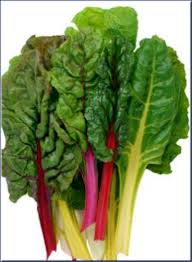Top 7 Nutrient Dense Foods

Top 7 Nutrient Dense Foods / Top 7 Nutrient-Dense Greens/Leaf Vegetables ANDI score for leafy vegetables is high when compared to fruits and vegetables.It shows leafy vegetables contains more nutrients(vitamins and minerals)compared to fruits and vegetables. Nutrient density is defined as a ratio of nutrient content to the total energy content.More about Nutrient density Dr. Fuhrman ranks the foods using ANDI scoring system. ANDI stands for “ Aggregate Nutrient Density Index .” An ANDI score is showed in scales from 1 to 1000 based on nutrient content. ANDI is based on the formula (Health = Nutrients / Calories).It considers micro nutrients per calorie, vitamins, minerals, and many known beneficial phytochemicals for calculation. According to Dr. Fuhrman , the top 7 most #nutrient-dense foods are leaf vegetables and their respective ANDI scores are , 1.Mustard Greens – 1000 Storehouse of powerful antioxidants like vitamin K, vitamin A and vitamin C. 2.Collard Gr





